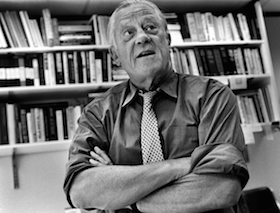
From the moment he took over The Post newsroom in 1965, Mr. Bradlee sought to create an important newspaper that would go far beyond the traditional model of a metropolitan daily. He achieved that goal by combining compelling news stories based on aggressive reporting with engaging feature pieces of a kind previously associated with the best magazines. His charm and gift for leadership helped him hire and inspire a talented staff and eventually made him the most celebrated newspaper editor of his era.
The most compelling story of Bradlee’s tenure, almost certainly the one of greatest consequence, was Watergate, a political scandal touched off by The Post’s reporting that ended in the only resignation of a president in U.S. history.
But Mr. Bradlee’s most important decision, made with Katharine Graham, The Post’s publisher, may have been to print stories based on the Pentagon Papers, a secret Pentagon history of the Vietnam War. The Nixon administration went to court to try to quash those stories, but the U.S. Supreme Court upheld the decision of the New York Times and The Post to publish them.
The Post’s circulation nearly doubled while Mr. Bradlee was in charge of the newsroom — first as managing editor and then as executive editor — as did the size of its newsroom staff. And he gave the paper ambition.
Mr. Bradlee stationed correspondents around the globe, opened bureaus across the Washington region and from coast to coast in the United States, and he created sections and features — most notably Style, one of his proudest inventions — that were widely copied by others.